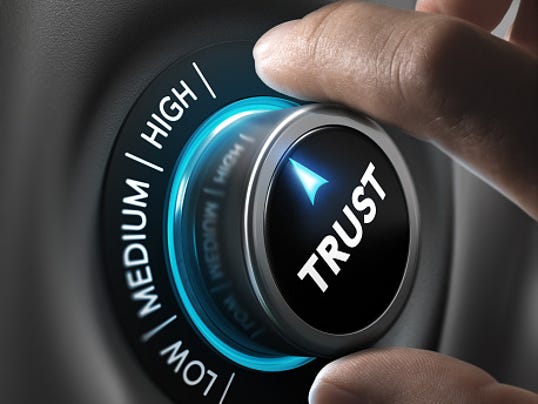People more
likely to trust, cooperate if they can tolerate ambiguity, study finds
Brown University
 Can a new colleague be
trusted with confidential information? Will she be a cooperative team player on
a critical upcoming project? Assessing someone’s motives or intentions, which
are often hidden, is difficult, and gauging how to behave toward others
involves weighing possible outcomes and personal consequences.
Can a new colleague be
trusted with confidential information? Will she be a cooperative team player on
a critical upcoming project? Assessing someone’s motives or intentions, which
are often hidden, is difficult, and gauging how to behave toward others
involves weighing possible outcomes and personal consequences.
New research published
in Nature Communications indicates that individuals who are tolerant of
ambiguity — a kind of uncertainty in which the odds of an outcome are unknown —
are more likely to cooperate with and trust other people.
Tolerance of ambiguity
is distinct from tolerance of risk. With risk, the probability of each future
outcome is known, said Oriel FeldmanHall, author of the
study and an assistant professor of cognitive, linguistic and
psychological sciences at Brown University.
The many unknowns inherent in social situations make them inherently ambiguous, and the study finds that attitudes toward ambiguity are a predictor of one’s willingness to engage in potentially costly social behavior.
“If we consider how we
go about navigating through our social worlds, we constantly need to
figure out what other people are feeling and thinking,” FeldmanHall said.
“Even if someone tells us they are angry, they may not be telling us how angry they really are, or why they might be angry in the first place. In other words, we try to predict other people without ever having full access to their ‘hidden’ states.”
“Even if someone tells us they are angry, they may not be telling us how angry they really are, or why they might be angry in the first place. In other words, we try to predict other people without ever having full access to their ‘hidden’ states.”
“Because we do not
have full knowledge of others’ feelings or intentions, it can be hard to
figure out whether it is best to trust another person with money or
information, for example, or cooperate with them when one’s well-being is at
stake,” FeldmanHall said.
That incomplete
knowledge, she said, means “social exchanges are rife with ambiguous — and not
risky — uncertainty: we can’t apply specific probabilities to how a social
exchange might unfold when we don't have certainty about whether the person has
trustworthy intentions.”
In the study, FeldmanHall and her colleagues performed a series of experiments in which 200 volunteers (106 female and 94 male participants) first completed a solo gambling game to assess their risk and uncertainty tolerance.
They then played social games in which they had to decide whether to
cooperate with or trust other players. Cooperation potentially benefited both
players, but cooperators risked being betrayed and losing out.
In one experiment, the
results showed that ambiguity tolerance was positively correlated with the amount
of cooperation. In a second study, the researchers found that those who could
tolerate ambiguity chose to trust a partner even if they knew the person did
not always behave in a trustworthy way in the past.
Overall, being able to
tolerate ambiguity predicted greater prosocial behavior, which
prioritizes the welfare of other people and not just one’s own
self-benefit. By contrast, there was no association between risk tolerance and
social decision-making.
When subjects were
allowed to gather information about others — through gossiping about, engaging
with or observing another person, for instance — and reduce the amount of
ambiguous uncertainty around their social choices, the link between ambiguity
tolerance and willingness to trust disappeared, according to the study.
FeldmanHall said that
the findings on the dimension of ambiguity in social decision-making presents
opportunities for further study.
“There are many
questions this work made us think about, and we are currently conducting a
number of experiments to explore this domain,” FeldmanHall said.
“As one
example, we are trying to understand whether situations that have ambiguously
uncertain outcomes influence how readily an individual will turn to their peers
for guidance on how to behave. The more uncertain the environment, the more
people might conform.”